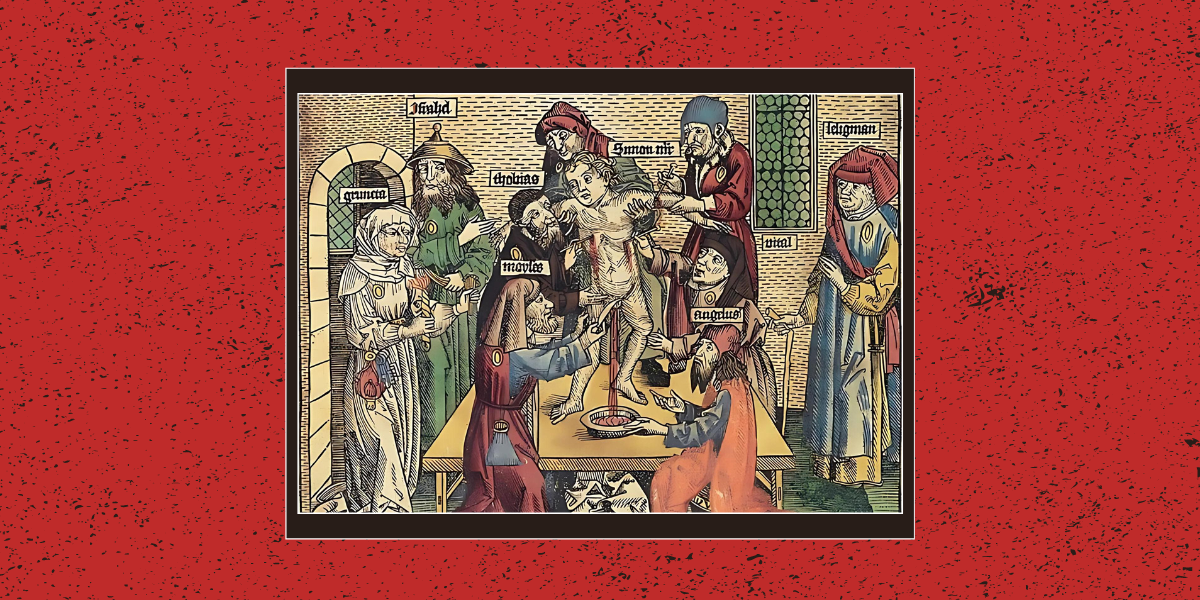About Hebrew
The Hebrew Root for Blood Libel, Comic Books and the Big Bang

Antisemitism, shockingly but somehow not surprisingly, has resurfaced from dormancy. A contagious disease, some of its side effects can be found in the Hebrew root ע–ל–ל (ayin-lamed-lamed), to cause or effect, as well as many other meanings.
Today’s news reminds us starkly that in addition to the vicious הִתְעַלְּלוּת (hitalelut), brutality, wrought against Israel by Hamas, we have also witnessed at the International Court of Justice an עֲלִילַת שָׁוְא (alilat shav), false indictment, of the country. In addition, there is the viral growth of wild accusations against Israel that amount to עֲלִילַת דָּם (alilat dam), blood libel. Yet, as can be seen from Scripture, the Talmud and on the streets of Israel, an even wider gamut of usages of the root can be found.
The Torah uses our root to teach an ethical lesson about charity. In Leviticus 19:10, grape growers are told וְכַרְמְךָ לֹא תְעֹולֵל (ve-kharmekha lo te-olel), “You shall not pick your vineyard bare”; rather, you must leave some fruits for the poor. The expression “from the mouths of babes” repurposes a verse in Psalms 8:3 that describes an עלֵל (olel), infant, with the power of speech. While imprisoned, the prophet Jeremiah (32:19) chants, despite his plight, that God is רַב הָעֲלִילִיָּה (rav ha-aliliyah), “mighty in deeds.” In 1 Samuel 31:4, King Saul, critically wounded in a battle with the Philistines, orders his arms bearer to kill him before they can come וְהִתְעַלְּלוּ בִי (ve-hitallelu bi), “and will toy with me.” In a story in Judges (19:25), which highlights the anarchy and immorality of that time, a depraved man, to save his own life, casts his concubine outdoors toward a gathering crowd. There, וַיִּֽתְעַלְּלוּ בָהּ (va-yitallelu bah), “[local townsmen] rape and abuse her.”
Rabbinic literature extends the usage of the root to reflect the culture of its times. A scholar עֲלִיל קַיְימֵי (alil kaimei), presents himself to his teacher. As 19th-century lexicographer Marcus Jastrow shows in a number of instances in the Talmud, עָלַל (alal), to go in, becomes עֲלִיל (alil), entryway. The rabbis, discussing laws of finance, treat what “enters” into the merchant’s purse as עֲלַלְתָּא (alalta), income.
Modern Hebrew adopts rabbinical Hebrew’s usages בַּעֲלִיל (ba-alil), clearly. The adjective עָלוּל (alul), liable to, is used for something negative that is likely to ensue. Today, we also find the root in עֲלִילָה (alilah), the plot of a play; שִׁיר עֲלִילָה (shir alilah), epic poem; תַּעֲלוּל (ta’alul), hoax or prank; and עֲלִילן (alilon), comic book.
And finally, for those with a philosophical approach to causality in theology or in science, there is the concept of הָעִלָּה הֲרִאשׁנָה (ha-illah ha-rishonah), The Prime Cause, i.e., the originator of everything, whether it be God or the Big Bang.
Joseph Lowin’s columns for Hadassah Magazine are collected in HebrewSpeak, Hebrew Talk and his most recent book, Hebrew Matters.










 Facebook
Facebook Instagram
Instagram Twitter
Twitter
Leave a Reply